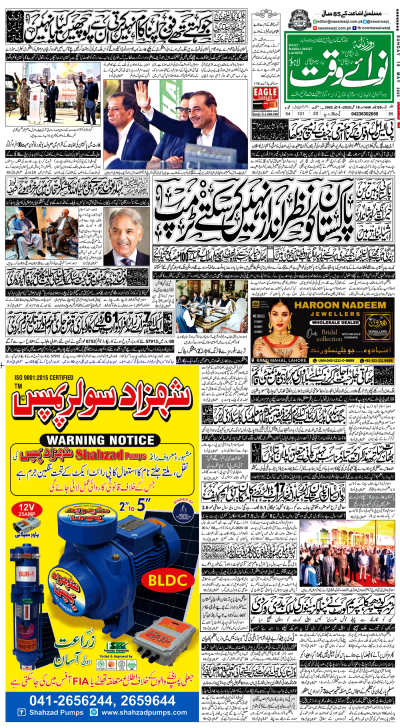There is a lot of romanticism attached to the concept of leadership. This is because of the power and status it normally confers upon the leader. The word “leader” conjures in everybody’s mind the privilege of power. This is further confused by the misconception that the power is unbridled. In essence, however, leadership confers more responsibility than authority. Most leaders, however, are desirous of having authority sans responsibility—a particular dilemma of developing countries.
Often, many leaders and managers consider responsibility to be a detachable burden, easily shifted to the shoulders of goals, fate, fortune, luck, or even one’s neighbour. There are also many who attribute all failures and successes to astrology and the stars. Leaders must first recognise the responsibility they have towards themselves. A clear distinction must remain supreme in the mind of the leader between rights and obligations versus duty and care towards others. Privileges can be no greater than obligations.
Our country has been, for the last 77 years, on a sailing boat called “HOPE.” It is hope that continues to create endeavours. We have been unable to set sail. We have been climbing the stairway to nowhere. Regrettably, we have become a maze of inconsistent purpose. There have been several navigators who, without doubt, did their best to give it some direction, but continuous instability rendered their efforts to no purpose. Emerson said there is no defeat except from within. Fortunately, we continue to fight the enemy within.
The current changing dynamics of the environment have put leadership, in all its formats and manifestations, under threat of siege. The growing geoeconomic uncertainty only adds fuel to the changes occurring at nuclear speed in relation to technology and economic dynamics.
The country has tried various economic models for achieving growth and development. The traditional economic model involving the creation of special economic zones and allowing them to flourish under different attractive terms in relation to taxation and tariffs has yielded remarkable economic growth in many countries. China is a case in point. We created almost nine economic zones but have yet to reap any benefit due to lack of attention. When other countries followed suit and created such zones, they achieved substantial economic growth. Vietnam and Cambodia have both achieved economic growth led by the export sector. At the time when China was vacating the low end of the value chain of textiles, Vietnam and Cambodia stepped in to take the benefits. Consequently, the results are stunning—the total exports of Vietnam, which were less than a hundred billion dollars, have peaked at US$405 billion. We are still struggling to achieve a $60 billion export target, and that too for 2030. Leadership must devise more imaginative methods besides export growth to propel the country towards notable economic development.
During Covid times, the world witnessed a major breakdown in the supply chain, which led to high commodity prices and major disruptions in the marketplace.The technological change that has occurred since then must be fully embraced. The fact is, the country suffers from major skill instability. In a survey conducted by the World Economic Forum, covering 22 industry clusters, 55 economies, and 14 million workers, the trends of job skills and workforce transformation strategies were examined to assess the challenges of the future. The study projects that between now and 2030, at least 170 million new jobs will be created, of which almost 92 million roles will be displaced.
Major demographic shifts are also emerging as a serious challenge to leadership.Consequently, there is an increasing demand for talent management. Leadership must address the issue of brain drain. In economies with ageing populations, jobs related to healthcare, nursing, and hospital management are expected to rise, whereas, in economies with a growing workforce, the demand for teachers, mentors, and higher education is expected to grow exponentially.
Leadership in developing economies will face the demand for roles involving Big Data, fintech engineering, AI specialisation, and cybersecurity. It is no mystery that most CEOs and government functionaries are not capable enough to even interview candidates for positions relating to AI or Big Data. The nagging question for Pakistan is: are we prepared for the inevitable change in global business conduct, given the high-tech transformation already in vogue in several economies? Our educational standards must be re-evaluated to incorporate subjects that will facilitate the transition towards a high-tech economy by 2030–2035.
Leadership must be selfless. I am a keen reader of the leadership qualities found in the late Singaporean Prime Minister, Lee Kuan Yew. After stepping down as Prime Minister, he took a backseat in the cabinet as a senior minister, intending to provide continuous oversight to the decision-making process. His reaction to the strike by Singaporean airline pilots is indicative of decisive leadership. He ensured that the striking pilots knew he had the capacity to sack them all and rebuild the airline. He is reported to have remarked, “I shall not allow you to destroy what I have built with hard work.” His threat of firing them all worked wonders, and soon, the pilots were back in their cockpits.
Developing countries like Pakistan do not need just a single enlightened leader but leadership multipliers. The sooner we embrace the reality of global economic transformation, the better prepared we will be to face the challenges arising from this momentous era of change.
Sirajuddin Aziz
The writer is a Senior Banker & Freelance Columnist.





